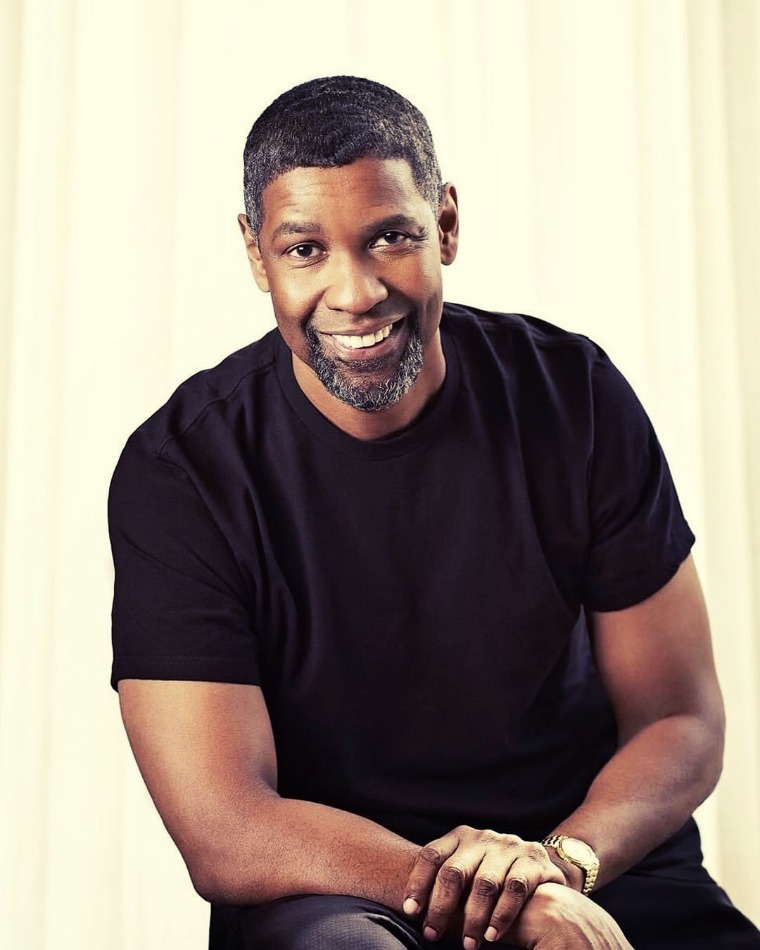Denzel Washington: “I’m not a big Hollywood star. I’m an actor…

Denzel Washington: The Artist Who Flees the Spotlight
Denzel Washington is more than a name—he’s a phenomenon, a cinematic icon with an undeniable allure. But call him a “Hollywood star,” and he’ll furrow his brow, firmly stating, “I’m not a star. I’m an actor… and above all, I’m a human being.” In the glitzy world of Hollywood, where fame is the ultimate currency, Washington chooses to flee the spotlight, immersing himself in his art. His story isn’t just about legendary roles; it’s about a man steadfastly living by his own values.
From Mount Vernon Boy to Silver Screen Legend
Born on December 28, 1954, in Mount Vernon, New York, Denzel Washington grew up in a modest household, with a Pentecostal minister father and a beautician mother. Far from glamour or privilege, his childhood was shaped by humility and discipline. Initially pursuing journalism at Fordham University, he found his true calling in theater, drawn to acting like it was fate. His breakout role in the 1980s series St. Elsewhere opened Hollywood’s doors, but it was his powerful portrayal of Private Trip in Glory (1989) that catapulted him to new heights, earning him his first Oscar for Best Supporting Actor.

Washington doesn’t just act—he inhabits his roles. From the fiery Malcolm X in Spike Lee’s 1992 biopic to the morally corrupt cop Alonzo Harris in Training Day (2001)—a performance that clinched him a Best Actor Oscar—each character he plays pulses with a distinct soul. Whether embodying a historical hero or a flawed antihero, Washington transforms with chilling authenticity, blurring the line between actor and character.
Fleeing the Limelight
While Hollywood worships fame, Washington sees it as a burden. “I don’t live to be a star,” he once said with unwavering conviction. “I live to work.” He steers clear of tabloid traps, rarely engages with social media, and guards his personal life fiercely. For him, acting is the art of storytelling, not a tool for crafting an image. He’s declared, “Fame is just a byproduct. It’s not the goal.” This isn’t mere rhetoric—it’s the compass guiding his career.
Washington prepares for roles with rare dedication. To embody Rubin “Hurricane” Carter in The Hurricane (1999), he spent months studying the life of the wrongly convicted boxer, from his punches in the ring to his years behind bars. This meticulousness doesn’t just lend authenticity to his performances—it leaves audiences breathless.
A Legacy Beyond the Screen

Washington isn’t just a phenomenal actor. He’s a director, producer, and quiet philanthropist. The scholarships he funds, the charities he supports, and the young actors he mentors reflect his generous heart. His directorial works, like Antwone Fisher (2002) and Fences (2016), aren’t just films—they’re profound human stories that resonate deeply. Yet, he never boasts; his work speaks for itself.
His collaborations with directors like Spike Lee, Tony Scott, and Antoine Fuqua have birthed unforgettable cinematic moments. From Malcolm X to The Tragedy of Macbeth (2021), Washington seeks roles that challenge him, tackling weighty themes like justice, morality, and redemption. He doesn’t chase trends or box-office glory but pursues stories that matter.
Why He Flees Fame

In an era where celebrity culture reigns supreme, Washington is a rebel for rejecting the “star” label. To him, fame is a trap, a distraction from true art. “I’m here to tell stories, not to be idolized,” he bluntly told The Guardian in a 2018 interview. This mindset preserves his artistic integrity in an industry that often prioritizes image over talent.
Faith and family anchor him. A devout Christian, Washington finds balance in spirituality. Married to Pauletta Washington since 1983, he’s a devoted father of four, placing family above Hollywood’s allure. “In the end, it’s not about awards or money,” he’s said. “It’s about the legacy you leave for your children, your community, and your work.”
The True Denzel

Denzel Washington is a living testament to staying true to oneself. He doesn’t chase fame—he flees it, choosing to dive into art and authenticity. His insistence on being seen as an actor and a human, not a star, reveals the heart of a true artist who values substance over spectacle. As he continues to captivate audiences with haunting performances, Washington’s legacy endures not in Oscar statuettes but in the stories he tells, the lives he touches, and the way he lives—a man of art, not a star.